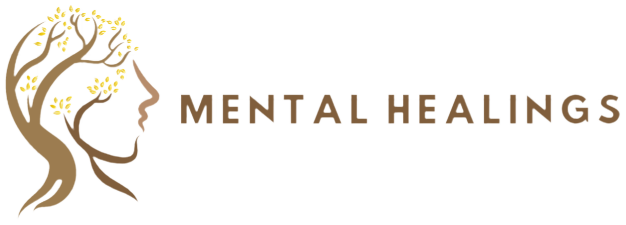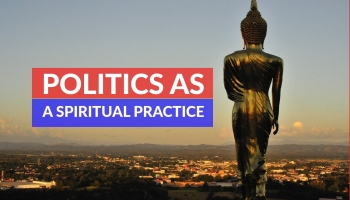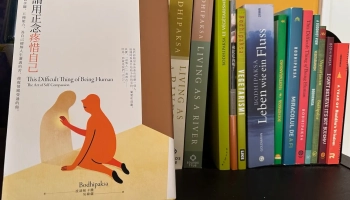
[ad_1]

One of the members of Wildmind’s community reminded me recently of an article, “The Surprising Downsides of Empathy,” that appeared on the BBC website two-and-a-half years ago.
The article says:
In recent years, researchers have found that misplaced empathy can be bad for you and others, leading to exhaustion and apathy, and preventing you from helping the very people you need to. Worse, people’s empathetic tendencies can even be harnessed to manipulate them into aggression and cruelty.
Empathy generally has a pretty good press. Most, people, although not all, would suggest that we need more empathy in the world. The hold-outs are often those who take a “tough love” approach and think that we are mollycoddling people (especially young people). I suspect, however, that many of those people are often just unkind individuals. I also think they misunderstand the nature of empathy, but since I want to write today about misunderstandings of empathy I’ll leave that there for now.
The BBC article quotes researcher Paul Bloom, who famously wrote a book called “Against Empathy” several years back. I previously commented in this blog on an article drawn from that book. One thing Bloom wrote in that article was:
It is worth expanding on the difference between empathy and compassion, because some of empathy’s biggest fans are confused on this point and think that the only force that can motivate kindness is empathetic arousal. But this is mistaken. Imagine that the child of a close friend has drowned. A highly empathetic response would be to feel what your friend feels, to experience, as much as you can, the terrible sorrow and pain. In contrast, compassion involves concern and love for your friend, and the desire and motivation to help, but it need not involve mirroring your friend’s anguish.
Bloom is perfectly correct to point out the difference between empathy and compassion. The two are not the same. Empathy is a state of feeling something in response to another person’s feelings (you’re talking to someone whose child has drowned) or in response to their situation (you hear about someone whose child has drowned). Despite what the article I’m quoting states, empathy doesn’t necessarily require an act of imagination. If someone tells you their child has drowned, you will (as long as you’re not a psychopath) feel touched by their situation. You don’t, hearing that awful news, have to imagine in detail what it’s like to be in that situation.
Compassion is the desire to help alleviate suffering. We can see the active nature of compassion in the root of the Pāli and Sansrit word karuna. This comes from the verb karoti, which means “to do.”
Empathy isn’t enough. We need compassion. But does that mean empathy is bad, or useless?
The BBC article seems to suggest that it is.
Bloom uses the example of an adult comforting a child who is terrified of a small, barking dog. The adult doesn’t need to feel the child’s fear to help. “There can be compassion for the child, a desire to make his or her distress go away, without any shared experience or empathic distress,” he writes.
So according to this, we don’t need empathy. We can just have compassion.
To Have Compassion, We Need to Have Empathy
But is that the case? Let just imagine an adult who completely lacks empathy. To them, the crying child is probably just an annoyance, and they shout at the child, terrifying it even more. This adult doesn’t understand what it’s like to be afraid. They don’t know what it’s like to be helpless and to need help. Nor do they understand that the child needs adult reassurance. They don’t recognize that a child can’t turn off its fear by force of will. To know these things requires empathy. To know those things is empathy.
This highlights that empathy actually is at work in Bloom’s example. The compassionate adult knows what the child is going through and what it needs, which is empathy. They know what it’s like to be helpless and to be in desperate need for support and reassurance. It’s because they’re empathetic that they offer compassion.
See also:
The idea that empathy requires us to re-experience the child’s terror is a red herring.
Often in talking about situations where a “good thing” (like empathy) leads to a bad outcome (like being paralyzed because of taking on someone else’s pain) you’ll hear that the problem is that the person is “too empathetic.” I believe this is a mistaken diagnosis.
No virtue on its own is complete. Take generosity, as an example. It’s a good thing to be generous. It helps us be happier; studies have shown that giving something to another person can be more satisfying than receiving the same thing ourselves. But what if you’re so generous that you give away the resources that your family need for basic survival? Does that mean you’re “too generous”?
There’s No Such Thing as Too Much of a Virtue
I don’t actually believe in the concept of having too much of a virtue. What I do believe is that you can lack other qualities (also virtues) that are necessary to stop a good quality such as generosity from being toxic. For example, prudence and wisdom are qualities that balance generosity, telling you what the consequences of continued giving are (“Wait, I have to pay the rent next week”) and so suggesting limits.
“Empathic distress” is another of the ideas that can grow out of the idea that you can have too much of a virtue. Clearly, if you take on board so much of a person’s suffering that you paralyze yourself and are unable to help them, that’s unhelpful. You’ve taken a situation where one person is in trouble and needs help, and turned it into a situation where two people are in trouble and need help.
In vividly imagining distress to the point where you paralyze yourself, you’re no longer practicing a virtue. You’re doing what the Buddha called indulging in “grief, sorrow, and lamentation,” which is a cause of suffering. An ancient Buddhist commentary in fact says that “sorrow is failed compassion.”
Missing Virtues
So what virtues are missing, so that empathy is turning into something toxic?
As with generosity, we need to balance empathy with wisdom. As an example example, Bloom shows that people will want a girl who has been brought to their attention to skip the queue for life-saving surgery. They empathize with the girl and want to act compassionately. But they ignore the others ahead of her in the queue, who might be in even more urgent need of surgery. It’s easy to ignore them, because they’re anonymous.
Wisdom considers that the other people in the queue are deserving of care as well.
We also need to balance empathy with ethical awareness of what’s right and wrong. In another study, people were willing to inflict pain on someone who was competing in a mathematics competition with a financially strapped student. The researchers had encouraged them to empathize with the student, but not the student’s competitor. Ethics (the Buddhist variety, anyway) tells us that even if we feel motivated to punish another person by inflicting pain on them, we shouldn’t, because violence is wrong. Ethics also embodies wisdom, because it tells us that another person’s suffering is as real to them as ours is to us; why then would be inflict unwanted pain on an other when we would dislike having that pain inflicted upon us.
Most of all, though, empathy needs to be balanced by self-compassion. When we see that another is in distress, we can be moved by that. That “feeling moved” can contain an element of discomfort. Self-compassion teaches us how we support ourselves emotionally as we experience suffering. It also helps us recognize when we’re bringing too much suffering upon ourselves — suffering that’s more than we can cope with and that isn’t necessary in order for us to be helpful.
All of the “downsides” of empathy that the article describes are of this nature. They’re not actually the downsides of empathy at all. They’re the downsides of lacking virtues such as wisdom, ethics, and self-compassion or self-care.
Certainly, empathic distress isn’t helpful. It’s even harmful. But it’s not the sum total of what empathy is. To give money to help starving people on the other side of the world you most certainly don’t need to imagine what it’s like to starve. But you do have to care. And a person lacking in empathy doesn’t care, which the person who has real, balanced empathy does: they experience compassion and are moved to help.
It is wonderful that Bloom and others are showing the harmful side of unbalanced empathy, which leads to “empathic distress.” It’s just a shame that they’re not clearly pointing out what the problem is: the under-development of balancing virtues.
Wildmind is an ad-free, community-supported meditation initiative, supported by sponsors. If you find this website helpful, you’ll love the access that Wildmind’s sponsors get to the meditation courses and other resources that I make available to them. Click here to learn more.
[ad_2]
Source link






